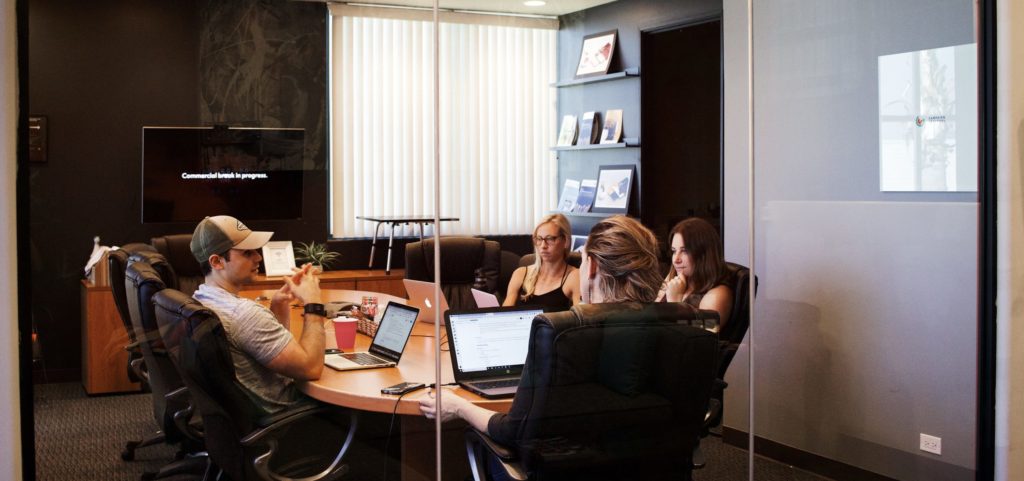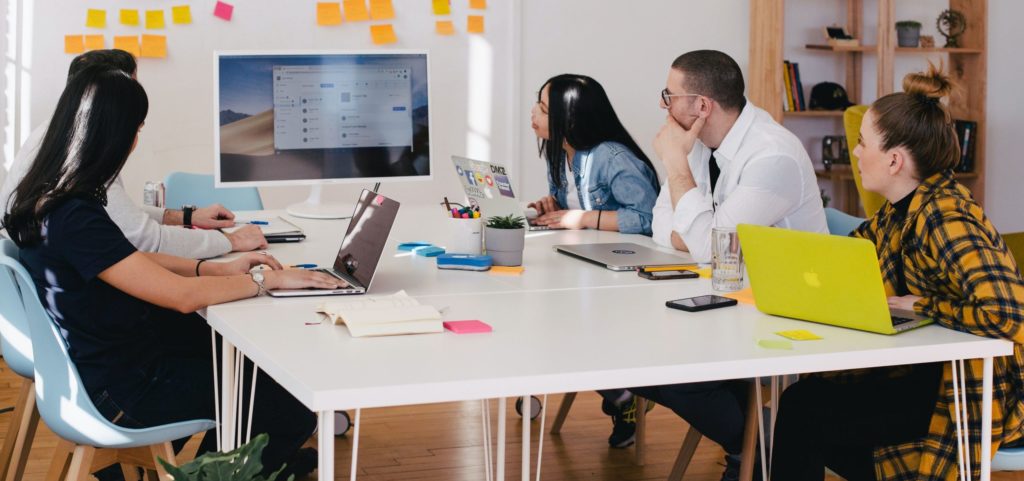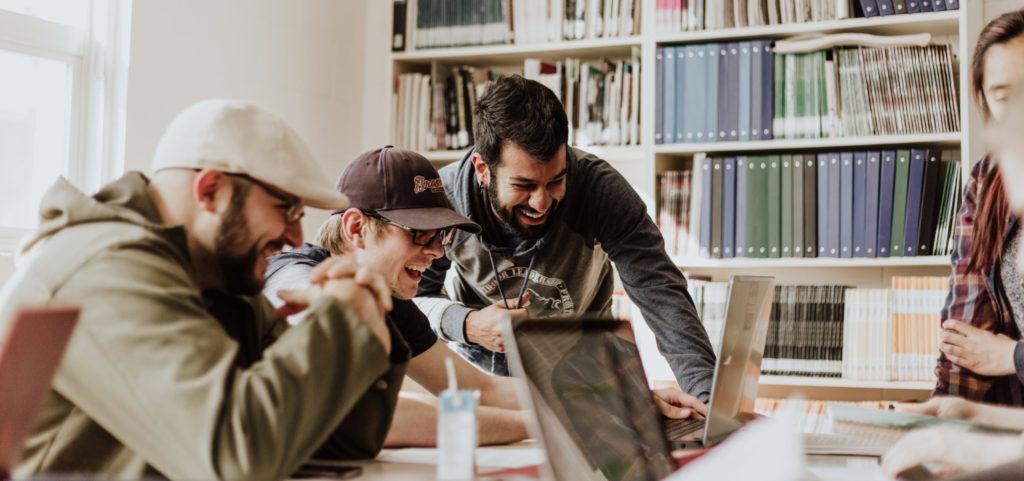The world is changing fast—and so is the workplace. Traditional educational approaches are no longer enough to prepare students for this evolving landscape.
Today’s employers seek innovative graduates with 21st-century skills like confidence, creativity, and critical thinking. It’s vital to instil these skills to help your students excel in our dynamic working world—and experiential learning is the way to do it!
What is graduate employability?
Broadly, employability describes a person’s ability to find and keep a job. Graduate employability specifically refers to a learner’s career readiness and likelihood to impress employers following graduation.
But what makes a career-ready student?
Several scholars have attempted to define and measure employability. One 2018 study published in Frontiers in Psychology discusses the Bioecological Model of Employability and the Employability Appraisal Scale (EAS), which assesses employability’s social and personal aspects.
The Bioecological Model presents employability as a key element in recovering from economic crises, developing new career models, and enhancing the labour market. It suggests there’s more involved in employability than skills and experience—behaviours, thought processes, cultures, privileges, knowledge, and social attitudes are also deeply intertwined.
Educators hoping to develop employability in their students must focus not only on skills and qualifications but also on exposing learners to meaningful, real-world scenarios and social challenges.
The best way to achieve this goal is through experiential learning. We’ll go into more detail about this approach later in this article.

Why does employability matter?
Employability is important for students, educators, and communities. It also plays a crucial role in how higher education institutions achieve positive graduate outcomes.
- Helps students find and maintain employment after graduation
- Improves educational experiences for students and educators
- Enhances learning outcomes
- Reduces delivery costs
- Increases graduate labour market outcomes
- Reduces unemployment levels
- Enhances and upskills the labour supply
The working world’s ongoing transformation also plays a key role in the growing importance of employability. With remote work on the rise, competition is now global—and graduates need to work even harder to stand out amongst the crowd.
According to economist Enrico Moretti in The New Geography of Jobs, “in the coming decades, global competition will be about attracting innovative human capital and innovative companies … cities with a large percentage of interconnected, highly educated workers will become the new factories where ideas and knowledge are forged.”
Educators, then, must instil relevant 21st-century skills and provide meaningful experiences to help students become the innovative, interconnected workers of the future.
What employability skills are important?
Regardless of your student’s career goals, several skills are critical in building employability across all disciplines. Let’s discuss a few employability skills and why they matter now.
Problem-solving
Problem-solving skills involve a student’s ability to identify, understand, and solve challenges. An individual with high problem-solving skills can find solutions to a given problem through a systematic approach, breaking down issues into smaller, digestible pieces.
There are two main categories of problem-solving: generic and domain-specific. Generic problem-solving skills focus on creativity, analytical thinking, and pattern recognition, while domain-specific skills include specialisations such as engineering design, science lab research, and interrogation techniques.
A highly employable graduate will exhibit both generic and domain-specific problem-solving skills. These abilities will help new employees tackle workplace challenges confidently, observing, judging, and acting quickly when issues arise.
Collaboration
Collaboration is critical for any organisation’s success. Brainstorming ideas and working as a team improves productivity and gives employees a sense of purpose, driving innovation and unlocking unique perspectives.
There are many ways to introduce more collaborative work into your classroom. For example, you could use work-integrated learning (WIL) to introduce your students to industry leaders, encouraging communication and reciprocal feedback similar to a real-world work environment.
Decision-making
People with strong decision-making skills can make quick, effective decisions with positive outcomes.
Workplace decision-making often involves input from different parties, including staff, customers, and stakeholders. Making decisions with so many different perspectives is difficult, so teaching your students how to use reasoning skills and intuition through vocational education is crucial.
Smart decision-making requires several related skills, including problem-solving, creative thinking, conflict resolution, and more. Again, the best way to teach these skills is through immersing your students in real-world scenarios where they must make genuinely impactful decisions.
For example, students engaging in a project-based learning task involving charity fundraising must work together to decide on the best course of action—how to raise funds, delegate tasks, and so on. The impact of the students’ decision-making will be quickly apparent in the outcome of their fundraising efforts.
Communication
Communication skills enable graduates to excel in interviews and to share their knowledge, ideas, and needs in the workplace. It’s also crucial in building positive relationships with bosses, fellow staff members, clients, and customers.
The best way to develop communication skills in your students is to encourage them to do just that—communicate! The more opportunities students have to express themselves and connect with people from all walks of life, the better their communication skills will be.
It’s also important to model effective communication skills in the classroom. Ask open-ended questions, foster class discussions, and reinforce active listening. Reflective learning —a key part of experiential education—can help students identify and address their strengths and weaknesses in communication.
Valuable pedagogies for educators can use in higher education institutions
Now, let’s discuss some approaches you can use for developing student employability in your classroom.
Experiential learning
Experiential learning is a modern pedagogy focusing on the learner’s physical and emotional involvement in the subject. It involves applying classroom content to meaningful, real-world situations, often involving some sort of risk or challenge.
Educational theorist David Kolb developed his experiential learning theory in 1984. His model offers a foundational approach to all kinds of learning across cultures and disciplines, where students’ individual learning styles play a central role.
Kolb’s experiential learning cycle is a four-stage model that repeats itself indefinitely. The four stages are:
- Experiencing
- Reflecting
- Thinking
- Acting
While there are endless ways to use the experiential learning model in your classroom, there are some guidelines to follow. Experiential learning projects should be meaningful, timely, student-led, and relevant to course content.
Examples of experiential learning activities include field trips, peer-to-peer tutoring, case studies, role-play exercises, group projects, on-the-job training, and internships.
Project-based learning
Project-based learning (PBL) falls under the experiential learning umbrella. It focuses on students applying knowledge and skills learned in the classroom to real-world contexts.
Rather than centring on the outcome of a project, project-based learning is all about the process. Projects should be engaging, meaningful, and challenging, encouraging students to learn from their mistakes and explore growth opportunities.
Examples of project-based learning include:
- Architecture students visiting a job site to measure topography
- Computer engineering students designing and building an app
- Hospitality students catering for an event
- Art students planning and running a gallery show
- Graphic design students creating and presenting a logo for a client
These examples all meet project-based learning criteria, which require a challenging problem or question, sustained inquiry, authenticity, reflection, and a public product. For example, art students running a gallery show aim to solve the question, ‘How can artists successfully market their work?’
PBL enhances several crucial employability skills, including teamwork, problem-solving, creativity, communication, critical thinking, and other hard and soft skills. Implementing this technique in your classroom is a surefire way to equip students with the core skills needed for success.
Work-based learning goals
Work-integrated learning (WIL) is another powerful approach to enhancing graduate employability. This kind of experiential learning focuses on immersing students in genuine working environments.
WIL offers many benefits for students and educators, connecting learners with industry leaders and teaching employability skills relevant to their desired careers. Educators can observe how well students perform in work-like settings and can easily identify areas for improvement.
There are many ways to implement WIL in tertiary education, including virtual and in-person internships, job simulations, student-led enterprises, entrepreneurship, service learning, work placements, and fieldwork.
How experiential learning can drive higher education employability
Experiential learning is the most effective approach to building employability skills and enhancing graduate attributes. Let’s discuss a few reasons why.
Real-world experiences
Many graduates leave university with skills and knowledge but little to no experience in the real world. This problem lends itself to the old catch-22 situation of needing the experience to find a job but needing a job to get experience!
Experiential learning solves this issue by providing students with real-world experience before entering the working world. This way, students know what to expect as they enter their careers with enthusiasm and confidence.
Active learning
Active learning involves students taking an equal role in the learning process. Rather than passively listening to instruction, students actively engage in class discussions and problem-solving.
According to a 2017 study published in Creative Education, active learning fosters a positive learning environment, facilitates direct interaction between students and lecturers, enhances communication skills, promotes open-mindedness, and encourages participation.
Using active learning techniques with your higher education students will increase knowledge retention and engagement in class content, helping you optimise and maximise your teaching efforts.
Collaboration and reflection
Collaboration and reflection are crucial aspects of career success.
Among other benefits, teamwork helps people solve problems, connect with workmates and clients, and be productive. Reflection enhances these benefits by identifying areas for change and improvement.
Teaching your students to collaborate and reflect through experiential learning will help them impress future employers and boost employment outcomes within your institution.
How Practera can help
Practera’s project learning technology platform is your one-stop shop for planning, organising, and delivering transformative educational experiences. Our authentic student industry experience programs delivered through our platform help your learners and students build in-demand skills like virtual teamwork, communication and stakeholder management while working with real industry clients. The opportunities are endless in what can be achieved through our platform and partnerships.
Our managed service for project-based learning offers high-quality education with real-world industry experiences. Start by connecting with our team today to adapt one of our Student Industry Project themes to your program such as growth strategy, technology innovation, sustainable impact, and more. With the freedom to decide the duration of the program, we’ll handle the work of setting up and connecting your project with industry clients!
By setting up your program on our platform, you have administrative access and live performance data to monitor your students and their process. Our service ensures full support throughout the program with a dedicated project manager as well as a certificate of completion for participating students.
The University of Sydney’s Business School recently used our platform to increase participation by 700% and enhance graduate employment by 300%. The higher education employability outcomes are clear—and delivery is simple with our extensive template library and custom experience design tools.
Download our experiential learning white paper today to learn more. Or, if you’re ready to get started, why not Pilot our Student Industry Experience Program for free?



